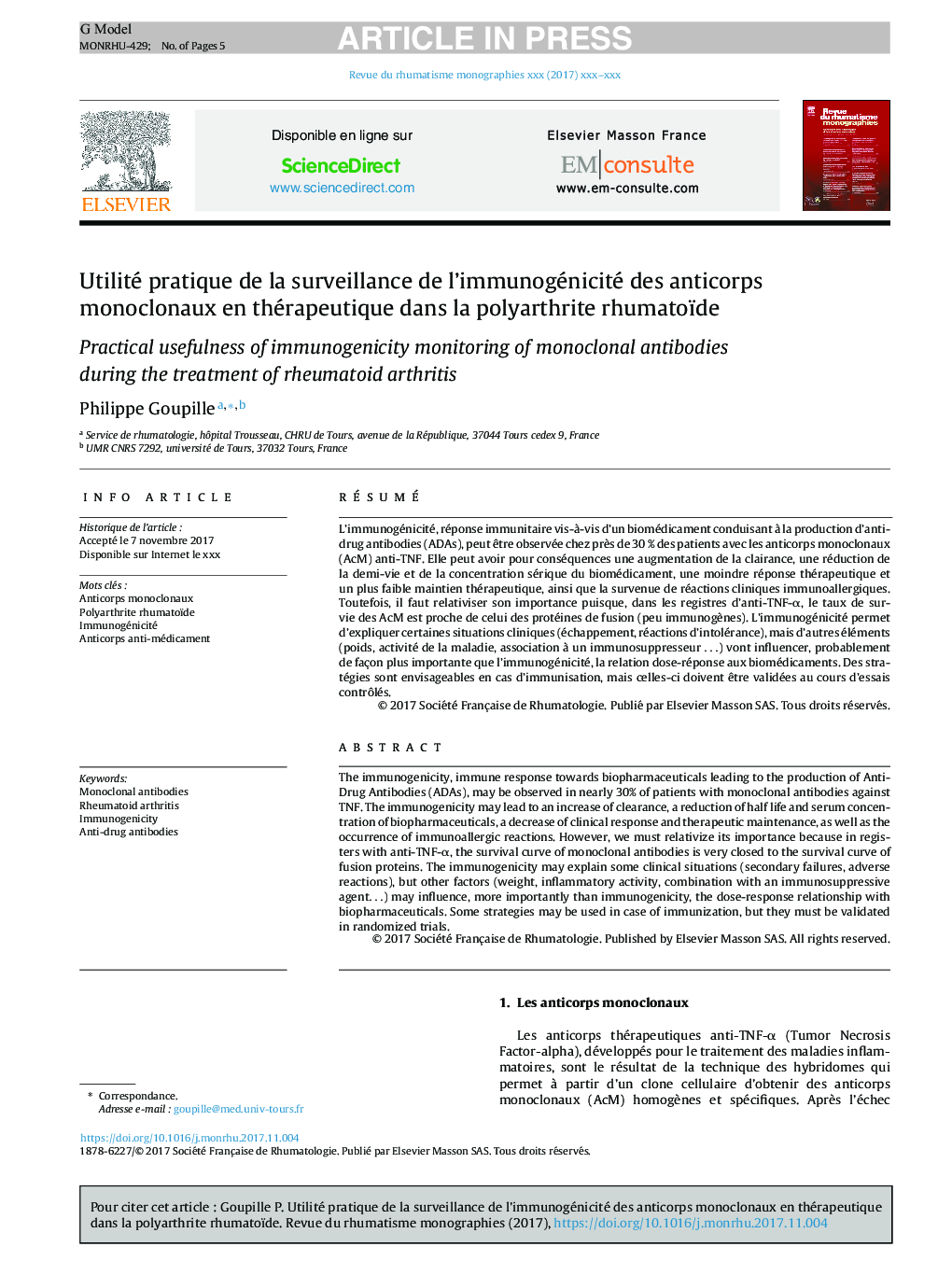| Article ID | Journal | Published Year | Pages | File Type |
|---|---|---|---|---|
| 8743541 | Revue du Rhumatisme Monographies | 2018 | 5 Pages |
Abstract
The immunogenicity, immune response towards biopharmaceuticals leading to the production of Anti-Drug Antibodies (ADAs), may be observed in nearly 30% of patients with monoclonal antibodies against TNF. The immunogenicity may lead to an increase of clearance, a reduction of half life and serum concentration of biopharmaceuticals, a decrease of clinical response and therapeutic maintenance, as well as the occurrence of immunoallergic reactions. However, we must relativize its importance because in registers with anti-TNF-α, the survival curve of monoclonal antibodies is very closed to the survival curve of fusion proteins. The immunogenicity may explain some clinical situations (secondary failures, adverse reactions), but other factors (weight, inflammatory activity, combination with an immunosuppressive agentâ¦) may influence, more importantly than immunogenicity, the dose-response relationship with biopharmaceuticals. Some strategies may be used in case of immunization, but they must be validated in randomized trials.
Keywords
Related Topics
Health Sciences
Medicine and Dentistry
Immunology, Allergology and Rheumatology
Authors
Philippe Goupille,
